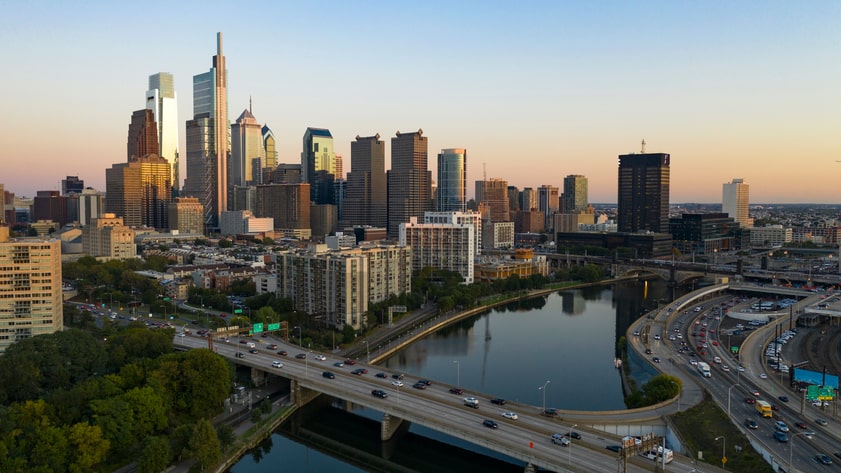The Infrastructure Bill and Your EV: Here’s What It Does

What’s in the Bipartisan Infrastructure Deal?
On November 6, 2021, Congress passed the Bipartisan Infrastructure Deal (Infrastructure Investment and Jobs Act), a policy that President Biden called a “once-in-a-generation investment in our nation’s infrastructure and competitiveness.”
So what does that mean for you?
The infrastructure bill makes electric vehicle adoption more appealing to everyone, from the die-hard EV fans to the EV-curious.
The $1.2 trillion deal dedicates $30.7 billion to EVs and related EV charging infrastructure, including $7.5 billion specifically to expand electric car charging stations across the country.
This scale of funding for EV infrastructure is unprecedented. And what will be the result? A national network of EV chargers.
Specifically, the policy focuses on funding new EV charging stations along highway corridors for long-distance travel, and within communities to provide convenient charging stations where people live, work, and shop. Officials with the Department of Transportation have said that likely locations include inner cities, multifamily locations, and along interstate highways. Certain developments can qualify for the tax credit for EV chargers as well.
This means that soon, you won’t need to worry about finding a charging station when you take your EV for a drive!
One of the most common reasons preventing people from going electric is a lack of charging infrastructure in their area. With this policy, that will soon change. The Biden Administration has a goal of a nationwide network of 500,000 electric vehicle chargers by 2030.
Even before this charging network is up and running, you can use our JuicePass app to find a public charger on the road. There are already nearly 43,000 public EV charging stations and around 120,000 charging ports across the country. With JuicePass, public charging is easy!
By the way — if you have a really good EV home charging station, you don’t need to worry about finding charging stations on the road. Our JuiceBox Level 2 EV chargers will charge your EV at home up to nine times faster than a traditional Level 1 charger.
That’s Not All — Additional Electric Car Incentives
This is just the latest policy providing EV incentives. There are many other EV rebates and EV tax credits already in play at the federal, state, and local levels. If you’re wondering how to claim EV tax credit, your electric vehicle must meet the criteria in order to qualify.
EV incentives from the federal government for the purchase of an eligible vehicle can amount to a $7,500 tax credit. But this credit will not last forever. After a manufacturer has amassed aggregate hybrid and EV sales over 200,000, the federal income tax credit for their vehicles will phase out. For this reason, incentives for General Motors and Tesla vehicles—the brands with the highest selling EVs—were gradually reduced throughout the last couple of years, and have recently expired. As sales continue to increase, incentives will phase out, so you’ll want to buy an EV sooner rather than later. Here’s a list of models that still qualify for the $7,500 tax credit.
In addition to EV incentives, there are plenty of incentives for purchasing charging stations, like the Juicebox Level 2 EV Charging Station. There are also incentives and rebates on the state and utility level. A California driver living in the Southern California Edison service area, for example, could be eligible for an additional EV rebate of up to $1,000 from the utility.
The key is to look for what’s available in your area through our EV Rebate Checker. Then read the fine print and contact your utility or other incentive program coordinator if you still have questions. Pay attention to special requirements, such as Level 2 chargers that are Wi-Fi enabled.
But What About the Build Back Better Act? More Federal EV Tax Credits Expected
Now, all eyes are on Congress to pass a second bill providing funding for infrastructure across the country. Known as the Build Back Better (BBB) Act, this second bill is expected to provide $12,500 as a federal EV tax credit. As the bill is currently written, a maximum credit of $12,500 would go to customers who purchase a domestically manufactured U.S. EV made with union labor.
Whether or not the BBB passes, the Biden administration, via the Environmental Protection Agency (EPA), has recently announced that it will tighten climate pollution standards for cars and light trucks. The new rules require new passenger vehicles to average 55 miles per gallon of gasoline by 2026. Because of this, electric vehicles will continue to become more competitive at the dealership, as their upfront costs even out. (EVs already have a less expensive lifetime cost).
Beyond that, we expect to see EVs and smart charging infrastructure to keep growing across the country. Sales are forecasted to continue increasing, with many widely anticipated new models arriving, and EV-related regulations and legislation will continue at the state level. Some states are already trying to follow California’s lead in banning gas-car sales, opting for clean energy instead.
Meanwhile, electricity to charge your EV will likely get cleaner and cheaper as more climate-friendly policies come online.
The Future is Electric
The Infrastructure Bill is just one step on the road to EV-paradise. We expect it will lead to more people purchasing EVs, which will incentivize state and local governments to build more public charging capacity more quickly, which will lead to even more people to purchase EVs, and so on.
So, what are you waiting for? Get ahead of the curve and go electric today.






